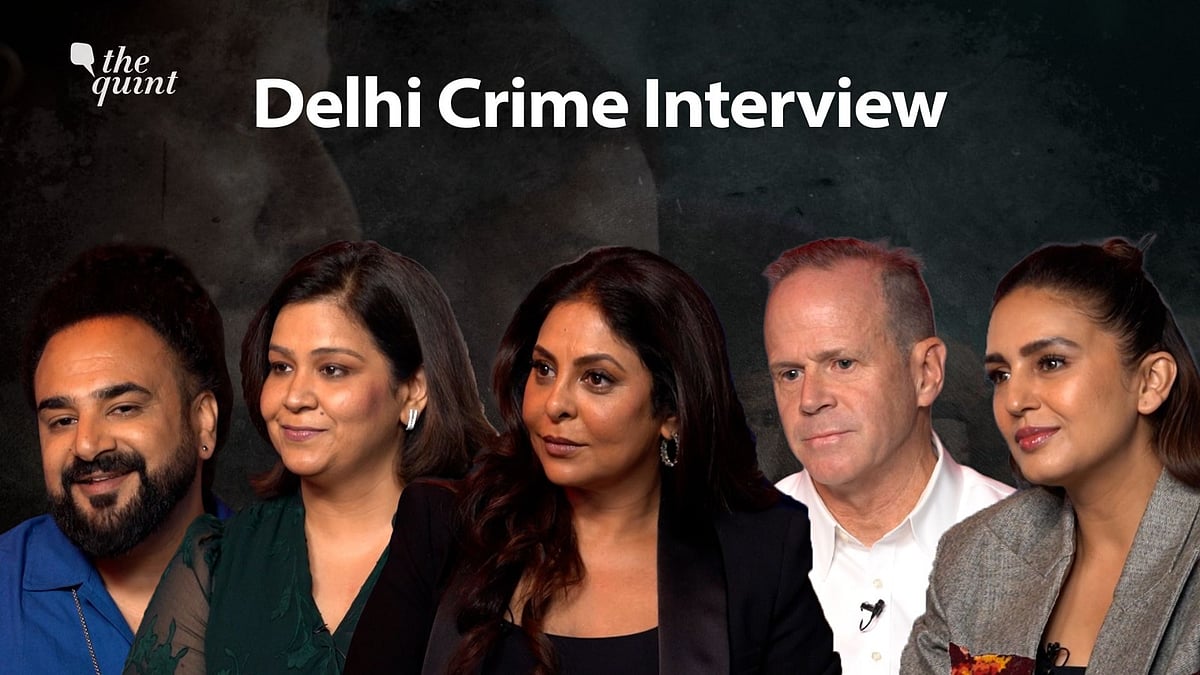'Pay Disparity Is More Apparent Between Stars And Actors': Shefali Shah
'Delhi Crime' season 3 delves into the issue of human trafficking, inspired by the tragic 2012 case of baby Falak.

advertisement
In this interview with The Quint, the cast and crew of Netflix’s Delhi Crime season 3—Shefali Shah, Huma Qureshi, director Tanuj Chopra, producer Michael Hogan, and Tanya Bami, Series Head at Netflix India—share their thoughts on gender pay disparity in the industry, the emotional toll of their roles, and empathising with cops.
The latest season delves into the issue of human trafficking, inspired by the tragic 2012 case of baby Falak.
Speaking on immersing herself into her role, Shefali opened up about the great sense of responsibility she feels with depicting real stories. "There is a certain sense of power that comes with the part that I’m playing. I want to feel all of it, there is nothing I want to shy away from."
The actor also expressed how essaying the character of cop Vartika Chaturvedi has evoked a newfound appreciation for the challenges they face, stating that the show "highlighted how little power cops actually have."
Director Tanuj also emphasised gaining a "huge amount of understanding and empathy for how challenging the job is", saying, "the energy to constantly be on top of a case, that drive is something that I’ve gained a lot of respect for."
He further highlighted the sensitivity with which the cast navigates dark and heavy themes such as human trafficking in the series, saying, "for the first month or two while developing it you feel sick. And then you get numb to it because it becomes a part of your life. We have ways of getting each other out of feelings of numbness."
Weighing in on the discourse around gender pay disparity in the industry, series newcomer Huma pointed out that more than salaries, there is a discrepancy in "what you’re allowed to make, how you’re allowed to do it and the budgets you get."
Shefali also addressed a different aspect of the conversation, noting that regardless of gender, there is a major gap between stars and actors.
Huma also acknowledged OTT platforms like Netflix for making major positive strides in changing these inequalities.
Delhi Crime 3 releases on Netflix on December 25. Watch the full interview here.